Women are often engaged in care work, which involves providing physical, emotional, and material support to their families and communities. Care work is essential for the well-being of society, but it is often unpaid, undervalued, and unrecognised. Women who perform care work face multiple challenges, such as a lack of access to health care, sanitation, food security, education, and social protection. These challenges affect their health, dignity, and empowerment.
Therefore, it is important to have social welfare policies that address the needs and rights of women engaged in care work. These policies can also reduce the burden of care work on women and enable them to participate in other spheres of life, such as economic, political, and cultural activities.
However, the formulation and implementation of these policies require the active involvement and representation of women in decision-making processes. Women have the right to voice their opinions and interests and to influence the policies that affect their lives. Unfortunately, women are still underrepresented in politics and governance, especially in India, where only 14% of the members of parliament are women. This low representation of women hinders their ability to advocate for their rights and needs and to hold the government accountable for its actions.
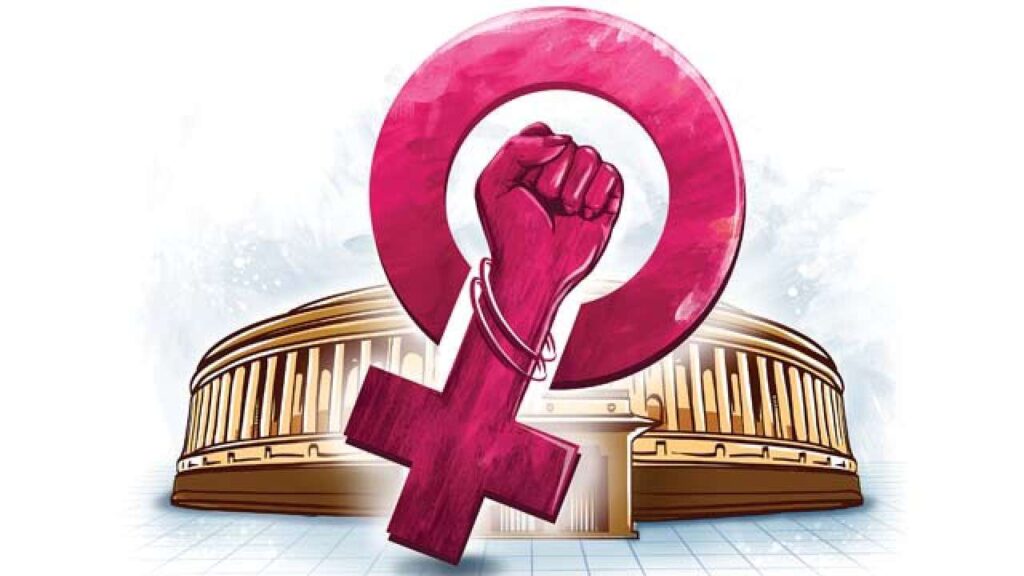
Women Reservation Bill | Photo credit: Rising Kashmir Archives
The Women’s Reservation Bill is a proposed constitutional amendment that seeks to reserve one-third of the seats in the Lok Sabha and the state legislative assemblies for women. The bill aims to increase women’s political representation and participation in decision-making processes at the highest levels of government. The bill has been introduced in Parliament several times since 1996, but has not been passed into law due to various political and social challenges. The bill has received support from various women’s rights groups, civil society organisations, and some political parties, who argue that it is a necessary step to break down gender barriers and empower women in Indian politics. The bill has also faced opposition from some other political parties and lawmakers, who have raised concerns about its feasibility, its impact on other marginalised groups, and whether it addresses the broader issue of women’s empowerment beyond political representation. The latest version of the bill was introduced in Lok Sabha on September 19, 2023, and was passed by both houses of Parliament within three days. It is a landmark moment for gender equality in India, as it will reserve one third of seats for women in the next general elections, However, the bill does not reserve the seats for women in the coming general elections in 2024, but rather in a phased rotational manner over the next 15 years.
Need of Women Reservation Bill
Women are still underrepresented in Indian politics. However, the bill is not just about numbers, but about justice, democracy, and development. It is based on the recognition that women have the right to participate in the political process and to influence the policies that affect their lives and the lives of their families and communities. It is not a permanent or rigid quota either, but a temporary and flexible measure to correct the historical and structural disadvantages that women face in the political arena.
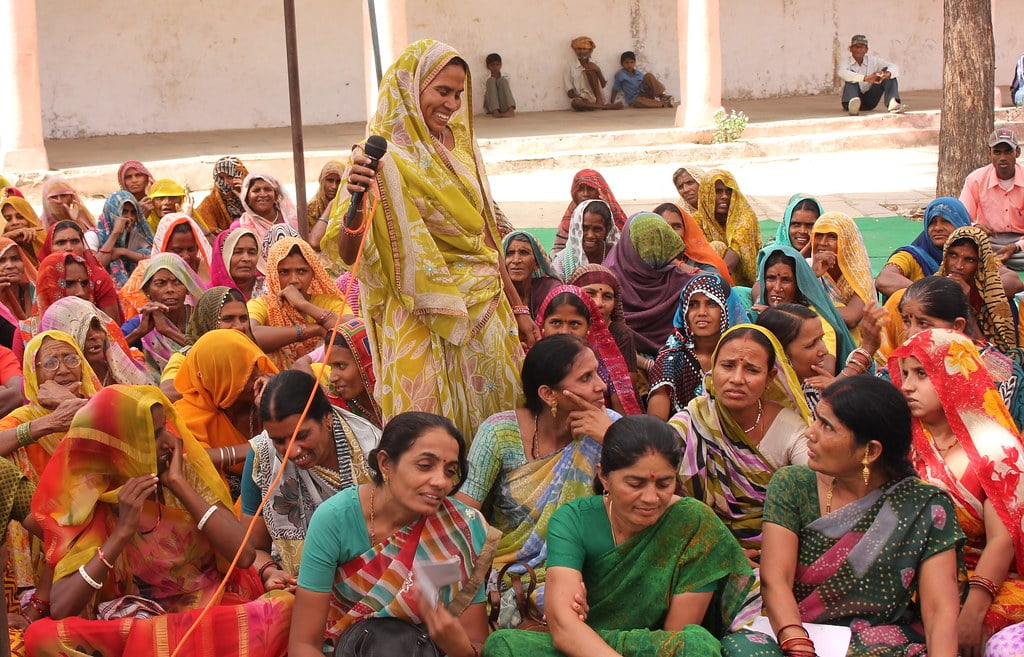
Women voicing their opinions in Gram Sabha in Kanbagram | Photo Credit: Flickr Archives
According to the data from the Inter-Parliamentary Union, an international organisation of national parliaments that promotes democratic governance, accountability, and cooperation among its members, India ranks 148th out of 193 countries in terms of the percentage of women in the lower house of parliament, which is only 14.4% as of 2023. This is much lower than the global average of 25.5%. Moreover, women’s representation in state legislative assemblies is also below 10% in many states.
Women in India face many barriers to enter and succeed in politics, such as patriarchal norms, lack of education, resources, and opportunities, violence and harassment, and discrimination and bias. The bill aims to create a more inclusive and diverse political system that reflects the aspirations and needs of women. Reservation can also enhance the quality of democracy and governance by empowering women to participate more actively in decision-making processes that affect their lives and the development of the nation.
The Long Background of the Women Reservation Bill
The bill has a long history of struggle and resistance. It was first introduced in the Lok Sabha as the 81st Amendment Bill in September 1996 by then Prime Minister Deve Gowda-led United Front government. The bill failed to get the approval of the House and was referred to a joint parliamentary committee, headed by Gita Mukherjee, which submitted its report to Lok Sabha in December 1996.
It was reintroduced in the Lok Sabha as the 84th Amendment Bill in February 1998 by then Prime Minister I K Gujral-led United Front government. However, the bill could not be taken up for discussion due to lack of consensus among various political parties and the dissolution of the 12th Lok Sabha.

New Parliament Building | Photo Credit: ABP News Archives
The bill was again introduced in the Lok Sabha as the 108th Amendment Bill in September 1999 by then Prime Minister Atal Bihari Vajpayee-led National Democratic Alliance (NDA) government. It faced stiff opposition from some parties, especially those with strong regional bases, who demanded that the bill should also provide for quotas within quotas for Other Backward Classes (OBCs), minorities and Dalits. The bill was referred to a joint parliamentary committee headed by Sharad Pawar, which submitted its report to Lok Sabha in December 2001.
The bill was revived in the Rajya Sabha as the 110th Amendment Bill in May 2008 by then Prime Minister Manmohan Singh-led United Progressive Alliance (UPA) government. It was passed by the Rajya Sabha with 186 votes in favour and one against on March 9, 20102. However,it could not be taken up for discussion in the Lok Sabha due to continued protests from some parties and the dissolution of the 15th Lok Sabha.
Women’s Reservation Bill 2023
The Women’s Reservation Bill of 2023, officially known as the Constitution (One Hundred Twenty-Eighth Amendment) Bill, is a significant legislative initiative aimed at increasing the representation of women in India’s political system. The bill was reintroduced in the Lok Sabha as the 125th Amendment Bill on September 19, 2023 by then Minister of Law and Justice, Arjun Ram Meghwal. It was passed by the Lok Sabha on September 20, 2023 with 454 votes in favour and two against. It was also passed by the Rajya Sabha on September 21, 2023 with 214 votes in favour and none against. The bill received the assent of the President on September 22, 2023 and became the Constitution (One Hundred and Twenty-Eighth Amendment) Act, 2023.
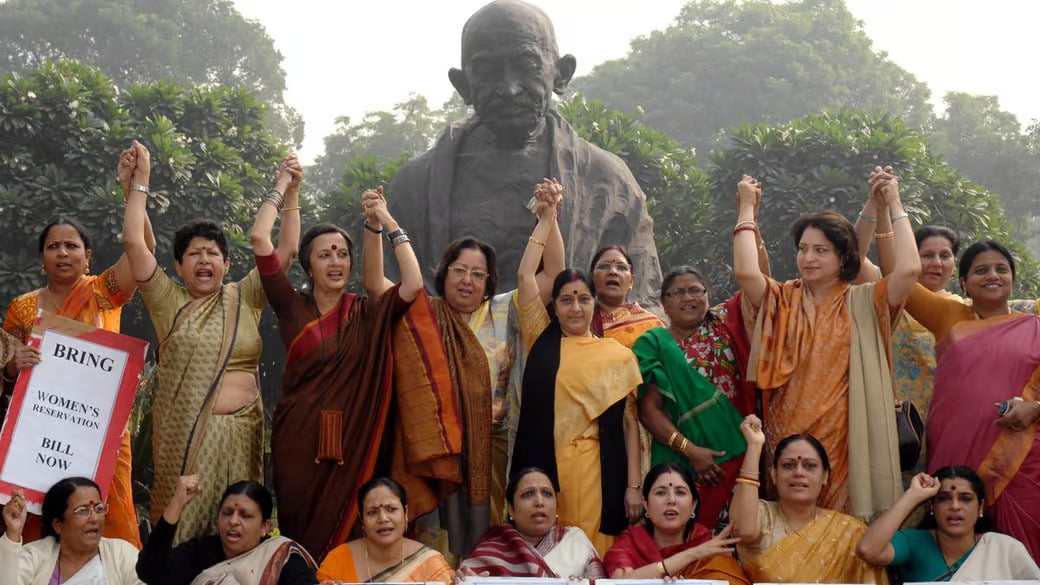
Long-pending women’s reservation bill resurfaces again | Metro Vaartha Archives
Some members of the parliament wondered if the Bill needed the approval of half of the state assemblies. This was because of the condition in Article 368(2) of the Constitution, which says that amendments that change the representation of states in Parliament need the consent of state legislatures before the President signs them. However, the bill did not go to the state legislatures and went straight to the President for her signature. This was because the government’s legal view was that the Bill did not affect the representation of the states in Parliament in any real way.
Key features of the Bill:
Article 330A and Article 332A are two of the important new articles that were introduced in the Constitution of India by the Women’s Reservation Bill 2023.
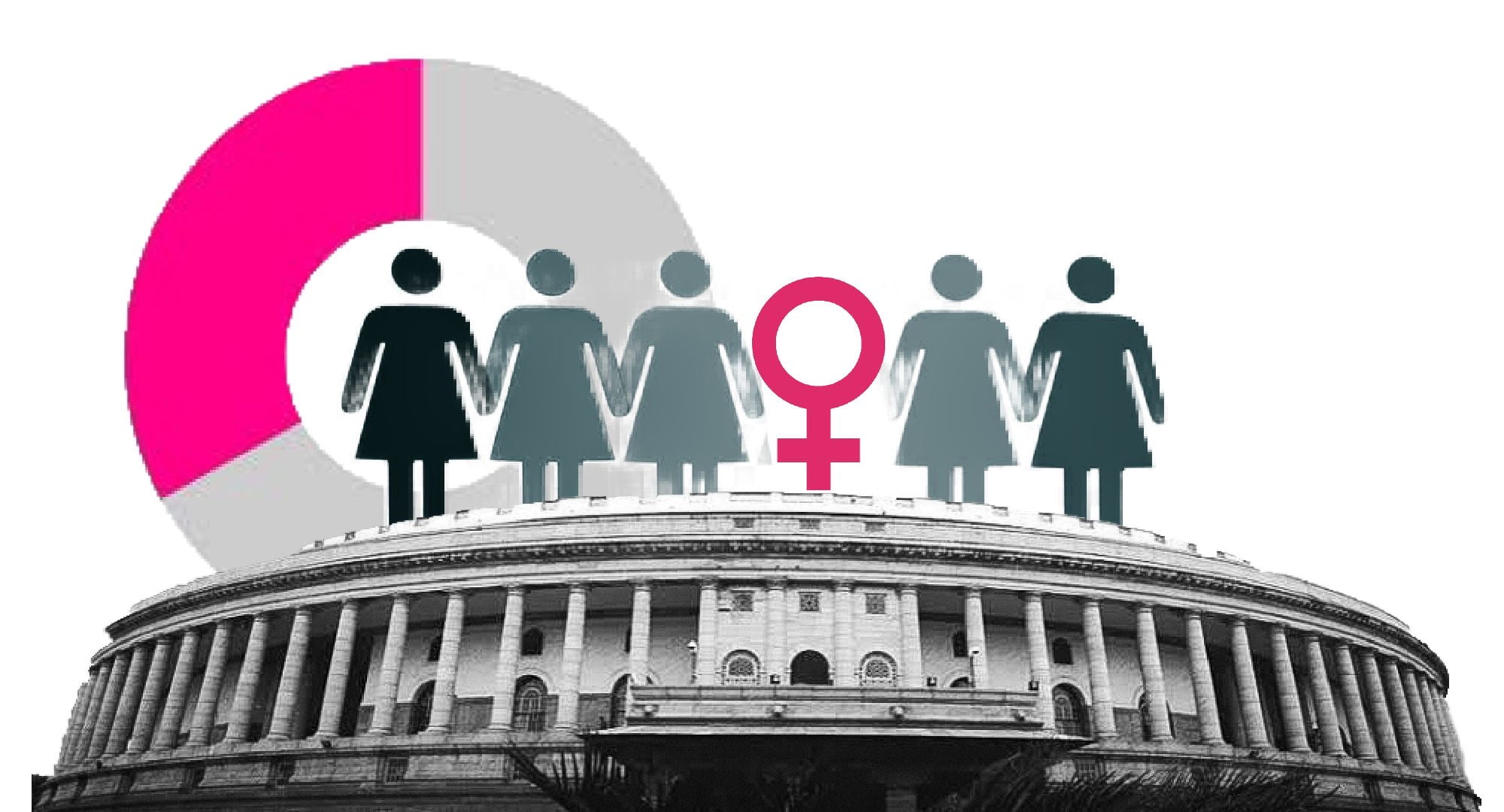
Women Reservation Bill | Photo Credit: Pranab Mukherjee Foundation Archives
Article 330A provides for the reservation of seats for women in Lok Sabha, the lower house of Parliament. It states that one-third of the seats reserved for SCs and STs in Lok Sabha shall be reserved for women of those groups. It also states that one-third of the total number of seats to be filled by direct elections to Lok Sabha shall be reserved for women. The reservation of seats for women in Lok Sabha will be on the basis of rotation, which means that the seats to be reserved for women in each election will be determined by draw of lots. The same seat will not be reserved for women more than once in three consecutive elections.
Article 332A provides for the reservation of seats for women in state legislative assemblies, the law-making bodies of the states. It states that one-third of the seats reserved for SCs and STs in state legislative assemblies shall be reserved for women of those groups. It also states that one-third of the total number of seats to be filled by direct elections to state legislative assemblies shall be reserved for women. The reservation of seats for women in state legislative assemblies will also be on the basis of rotation, following the same procedure as in Lok Sabha.
The bill also introduces a new clause in Article 239AA, which grants special status to the Union Territory of Delhi as the national capital. The new clause states that seats shall be reserved for women in the Delhi Legislative Assembly, following the same provisions as in Lok Sabha and state legislative assemblies.
The other article added by this bill is Article 334A, which states that the reservation of seats for women will be in force for a period of 15 years from the date of commencement of the amendment. The Parliament may extend or terminate the reservation by law. The bill also states that the reservation of seats for women will be implemented following the first delimitation, which is currently on hold until 2026. This means that the bill will not affect the next general elections in 2024, but will come into effect by 2029.
The bill however applies only to the Lok Sabha, the state legislative assemblies, and the Legislative Assembly of the National Capital Territory of Delhi. It does not apply to the Rajya Sabha or the state legislative councils.
Controversies of the Bill
The bill has been a subject of controversy and debate since it was first introduced in 1996. Some of the main controversies regarding the bill are:
- The bill does not give seats to women from Other Backward Classes (OBCs), minorities and Dalits, who are already less represented in politics . Some parties want the bill to also have quotas for these groups, or at least a sub-quota for OBC women.
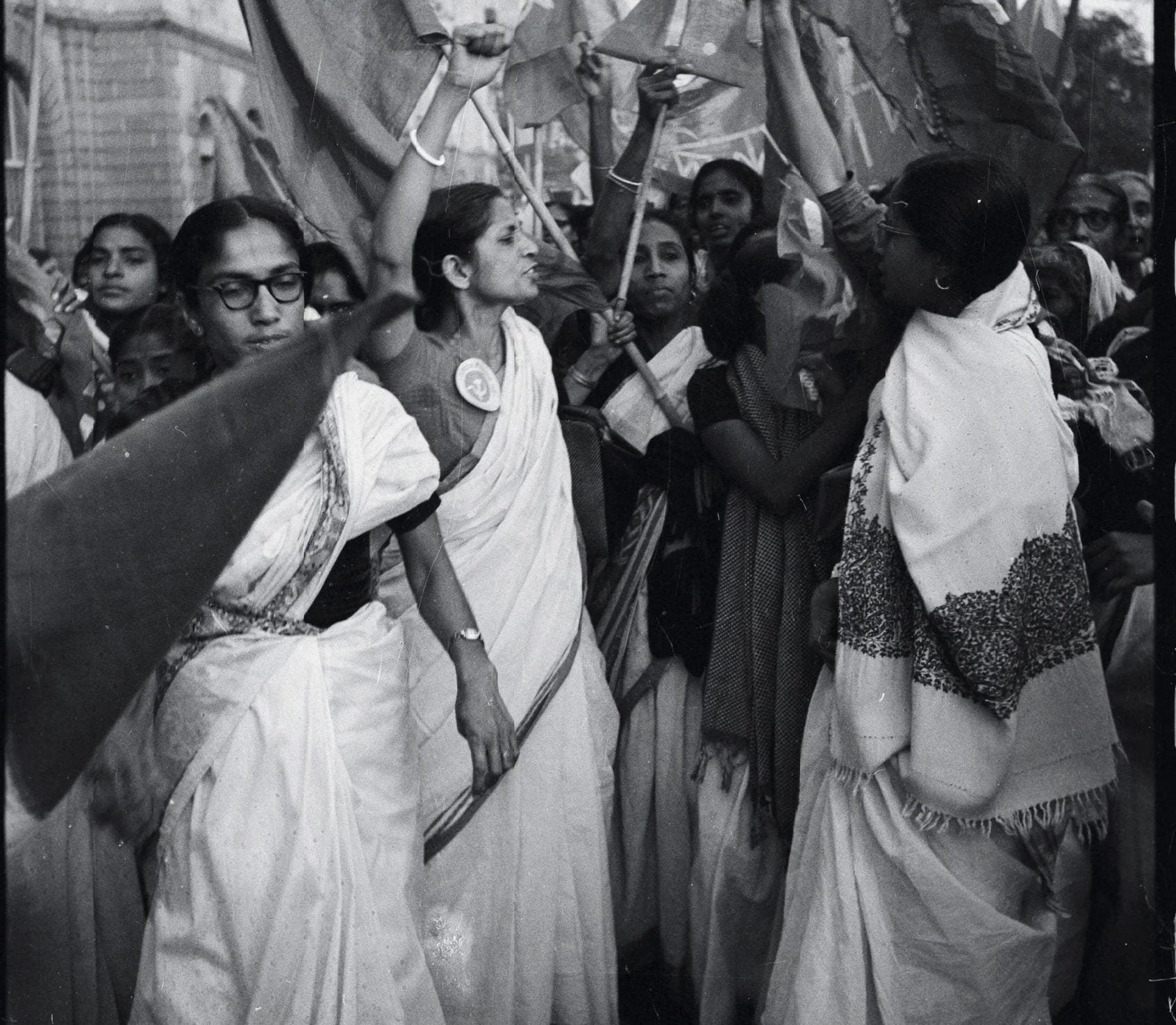
Flag-carrying, hand-waving, enthusiastic women shout anti-government slogans during a United Front women’s Day Demonstration here recently. More than 500 of the active ladies in Calcutta and an equal number in other West Bengal State Districts were arrested for defying the existing ban on public assembly anywhere in the states | Photo credit: Getty Images Archives
- Since the bill does not say when or how it will be implemented, some parties think that the government is delaying the bill and breaking the promises to women by not giving a clear date.
- The bill does not address a trend in local body elections where the reserved seats are practically run by men who are related (especially husbands) to the elected woman representative. These women become the proxies to their husbands. This may give an unintended result by weakening democracy.
Conclusion
The women reservation bill is a contentious and controversial issue in Indian politics. It aims to provide 33% reservation for women in the Lok Sabha and the state legislative assemblies, in order to increase their representation and participation in the decision-making process. The bill has been pending in the Parliament for over two decades, and has faced various challenges and oppositions from different parties and groups.

Inside new parliament building | Photo Credit: Forbes India
The bill has both positive and negative aspects, which need to be carefully weighed and evaluated. On the positive side, the bill aims to empower women, promote gender equality, enhance democracy, and bring a new perspective and vision to the governance and development of the country. On the other end of the spectrum, the bill may reduce the diversity of the candidates for the communities, undermine the merit and competence of the candidates, and reduce the accountability and responsiveness of the representatives, since there is reservation and guarantee for their candidacy in the next cycle.
However, it is undeniable that there is a need for a change in the political representation of women in India, which is currently very low and inadequate. The women reservation bill can be seen as a step towards achieving this change, by creating a space and opportunity for women to enter and excel in politics.
The bill may have some unintended and unforeseen consequences. Therefore, it is important to monitor and evaluate the implementation and impact of the bill, and make necessary adjustments and improvements along the way.
